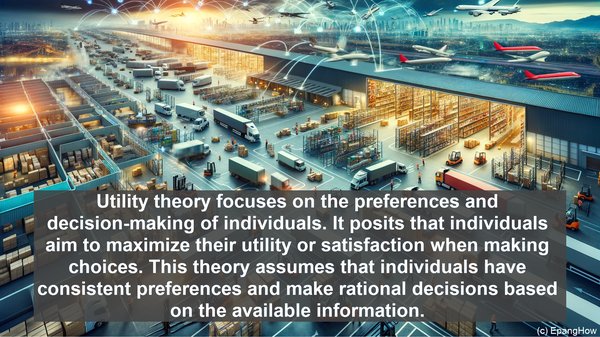Introduction: The Essence of Economic Analysis
Hello, everyone! Welcome to our article on utility theory and welfare economics. As we explore these concepts, we’ll uncover their significance in economic analysis and decision-making.
Utility Theory: The Foundation of Individual Choices
Utility theory focuses on the preferences and decision-making of individuals. It posits that individuals aim to maximize their utility or satisfaction when making choices. This theory assumes that individuals have consistent preferences and make rational decisions based on the available information.

Key Concepts in Utility Theory
Utility theory introduces several essential concepts. Firstly, the concept of ‘utils’ represents the units of measurement for utility. Additionally, the ‘law of diminishing marginal utility’ suggests that as an individual consumes more of a good or service, the additional satisfaction derived from each unit diminishes. Lastly, ‘indifference curves’ depict combinations of goods that yield the same level of satisfaction for an individual.
Welfare Economics: A Broader Perspective
While utility theory focuses on individual decision-making, welfare economics takes a more comprehensive approach. It examines the allocation of resources and the overall well-being of society. In essence, welfare economics aims to maximize social welfare or the collective satisfaction of individuals.
The Utilitarian Principle in Welfare Economics
One of the key principles in welfare economics is the utilitarian principle. It suggests that the best allocation of resources is the one that maximizes the total utility or well-being of society. However, this principle has been subject to criticism, as it may not account for the distribution of utility among individuals.
Comparing Utility Theory and Welfare Economics
While utility theory focuses on individual decision-making, welfare economics considers the broader implications of these decisions on society. Utility theory is concerned with individual satisfaction, while welfare economics aims to optimize social welfare. In a way, utility theory forms the microeconomic foundation for welfare economics’ macroeconomic analysis.

